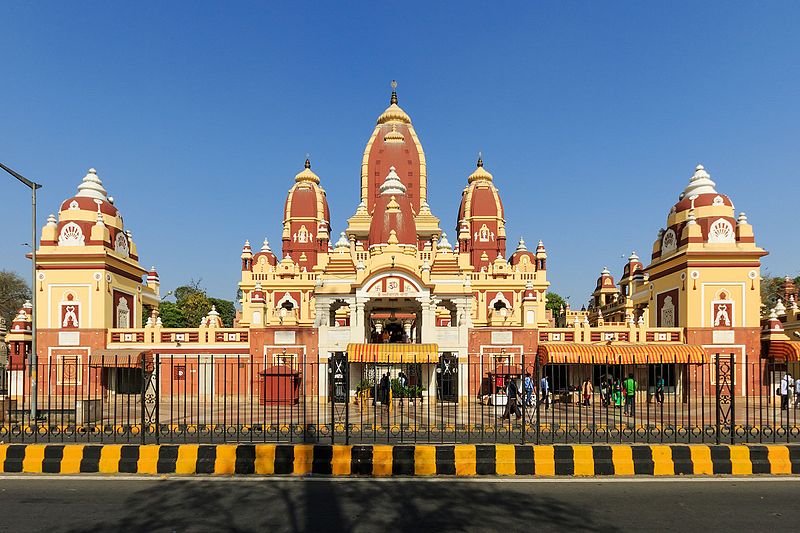Laxminarayan Temple


The Laxminarayan Temple is a Hindu temple up to large extent dedicated to Laxminarayan in Delhi, India. Laxminarayan usually refers to Vishnu, Preserver in the Trimurti, also known as Narayan, when he is with his consort Lakshmi. The temple, inaugurated by Mahatma Gandhi, was built by Baldeo Das Birla and his sons (including Ghanshyam Das) from 1933 and 1939. The side temples are dedicated to Shiva, Krishna and Buddha.
It was the first large Hindu temple built in Delhi. The temple is spread over 7.5 acres, adorned with many shrines, fountains, and a large garden with Hindu and Nationalistic sculptures, and also houses Geeta Bhawan for discourses. The temple is one of the major attractions of Delhi and attracts thousands of devotees on the festivals of Janmashtami and Diwali.
The construction of Laxminarayan Temple started in 1933, built by industrialist and philanthropist, Baldeo Das Birla and his son Jugal Kishore Birla of Birla family, thus, the temple is also known as Birla Temple'. The foundation stone of the temple was laid by Maharaj Udaybhanu Singh. The temple was built under guidance of Pandit Vishwanath Shastri. The concluding ceremony and Yagna was performed by Swami Keshwa Nandji. The famous temple is accredited to have been inaugurated by Mahatma Gandhi in 1939. At that time, Mahatma Gandhi kept a condition that the temple would not be restricted to the Hindus and people from every caste would be allowed inside.
This is the first of a series of temples built by the Birlas in many cities of India, which are also often called Birla Temple.
Its architect was Sris Chandra Chatterjee, a leading proponent of the ‘Modern Indian Architecture Movement’. The architecture was influenced heavily by the principles of the Swadeshi movement of the early twentieth century and the canonical texts used. The movement did not reject the incorporation of new construction ideas and technologies. Chatterjee extensively used modern materials in his buildings.
The three-storied Laxminarayan Temple is built in the northern or Nagara style of temple architecture. The entire temple is adorned with carvings depicting the scenes from golden yuga of the present universe cycle. More than hundred skilled artisans from Benares, headed by Acharya Vishvanath Shastri, carved the icons of the temple. The highest shikhara of the temple above the sanctum sanctorum is about 160 feet high. The temple faces the east and is situated on a high plinth.
The shrine is adorned with fresco paintings depicting his life and work. The icons of the temple are in marble brought from Jaipur. Kota stone from Makarana, Agra, Kota and Jaisalmer were used in the construction of the temple premises.The Geeta Bhawan to the north of the temple is dedicated to Lord Krishna. Artificial landscape and cascading waterfalls add to the beauty of the temple.